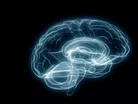Genetic Links Between 5 Psychiatric Disorders Found

A medical study, published in the medical journal Lancet, could change how we understand and treat psychiatric illnesses.
Scientists have been able to find genetic variants that are linked to not just one of the disorders, but to five major psychiatric disorders including autism, ADHD, bipolar disorder, depression and schizophrenia.
Dr Jordan Smoller, a psychiatry professor at Massachusetts General Hospital, explained, “There were several regions of the genome, several variations that seemed to increase the risk for all five. It's important to realize, of course, that this is a small part of the genetic component of these disorders, but it points to a shared biology,” he said.
The researchers were optimistic about finding a biological link owing to the fact that disorders often group in families. Smoller added, “It's not only that, we sometimes see the same family being affected with multiple kinds of disorders, so there was some evidence that there would be shared links, but this is the first time we've been able to see specific DNA variations.”
Will The Study Affect How We Treat These Disorders?
“Well, not immediately,” Smoller said. “But one of the interesting findings from the study was that genes involved in how calcium channels operate in the brain. These are important for how brain cells communicate. It seemed to be associated with all of these disorders, so it raises the possibility that treatments that target those channels might have broad effects.”
Smoller was keen to emphasise that just because an individual has family members that have one of these disorders doesn't mean they will develop a disorder. “We do know that all psychiatric disorders do seem to run in families to a degree,” he said. “We also know that genes are not destiny. It is not the entire picture. But the hope is that we're going learn something fundamental about how these disorders occur.”
Asked if eventually predicting these disorders is possible, Smoller said, “We're not there yet, but the more we learn about the genetic and non-genetic causes of these disorders, the better position we're going to be to know who might be at risk and what we might be able to do.”
- How ADHD Management Technology Supports those with ADHDTechnology & AI
- A new perspective on autism support with modern technologyTechnology & AI
- Rebecca Hudson appointed new CFO at Nova MentisMedical Devices & Pharma
- Rethink's new tool to help prescribing for autistic childrenMedical Devices & Pharma



